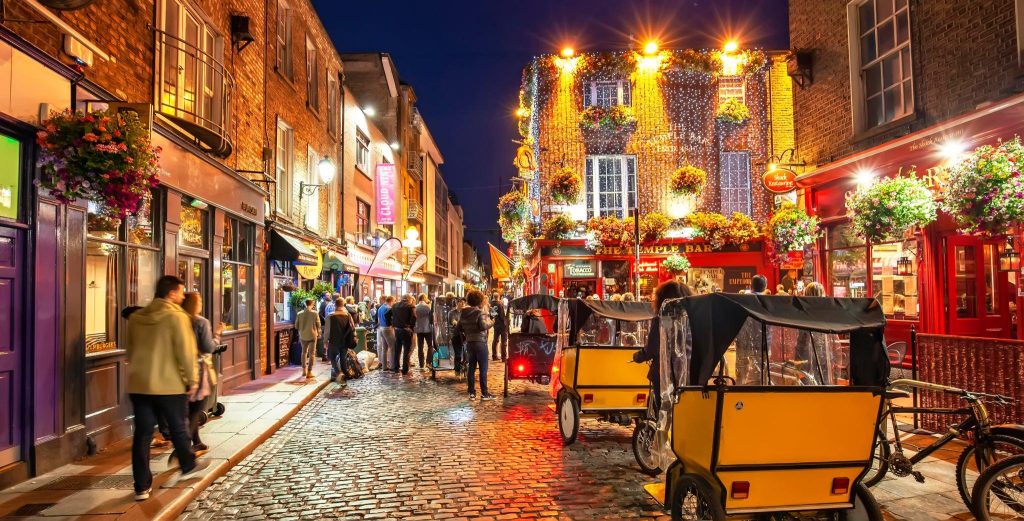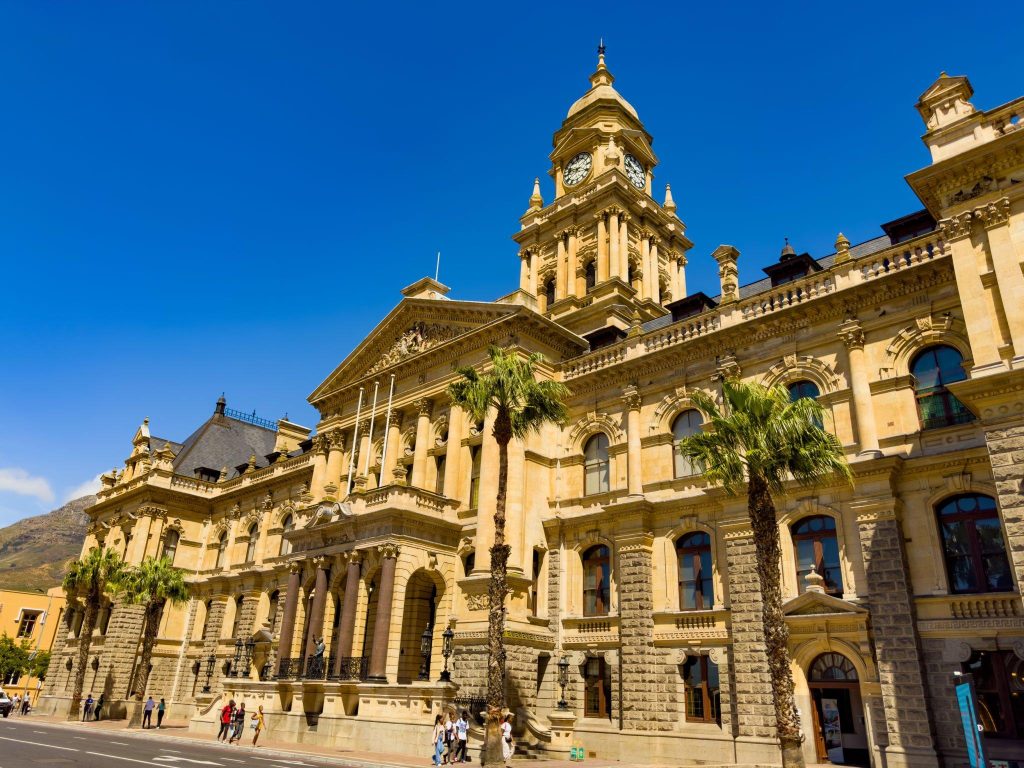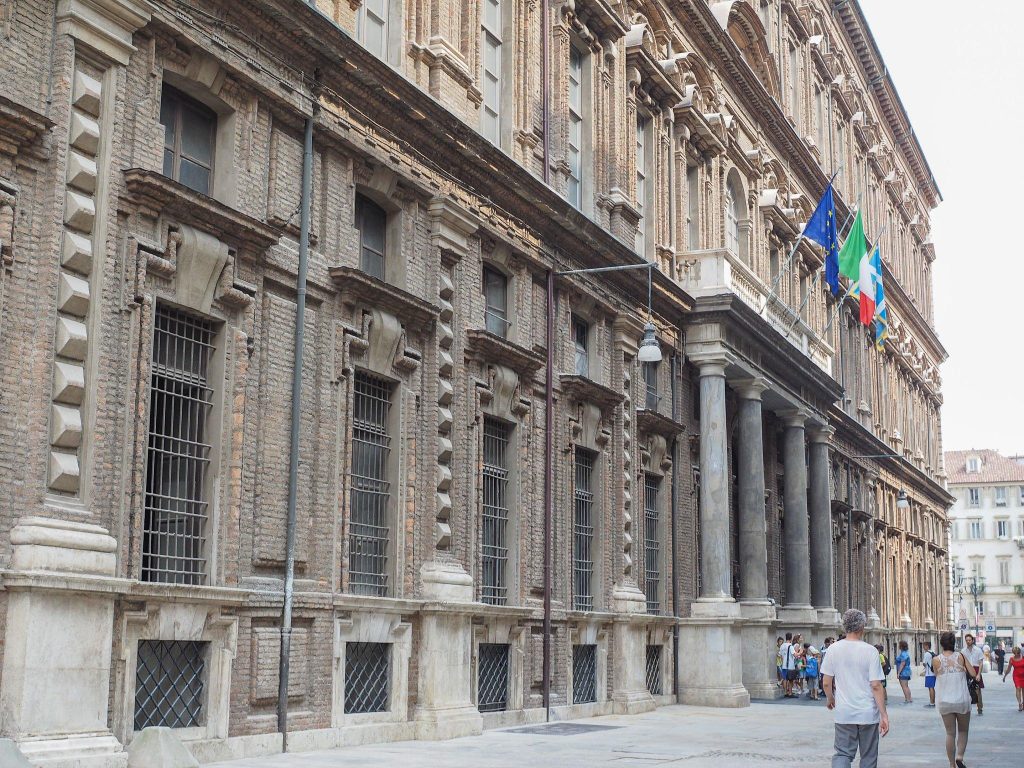
Cape Town, a vibrant and captivating city nestled along the southwestern coast of South Africa, is renowned for its rich history, stunning natural landscapes, diverse culture, and unique attractions.
Often referred to as the “Mother City,” Cape Town is a destination that seamlessly blends the old and the new, offering a plethora of experiences for visitors and residents alike.
From its iconic landmarks to its thriving arts scene, Cape Town has firmly secured its place as one of the most captivating and sought-after destinations in the world. Speaking of captivating destinations, if you’re interested in exploring the rich tapestry of Maine’s history, you’ll find it intriguing to learn more about Maine’s history on the Tales of Travelers website. Maine is known for its unique historical background, and delving into its past can offer a deeper appreciation for this enchanting region. Discover fascinating stories and insights that shed light on what makes Maine truly special.
In this exploration, we will delve into the various facets that Cape Town is known for, showcasing the city’s distinct charm and highlighting the key aspects that have contributed to its international reputation.
Contents
- 1 Cape Town’s History and Architecture
- 2 Nelson Mandela, Father of Modern South Africa
- 3 One of the Oldest Mountains in the World
- 4 Geological Origins
- 5 Distinctive Tabletop Shape
- 6 Biodiversity and Unique Flora
- 7 Outdoor Adventure and Tourism
- 8 Cultural and Spiritual Significance
- 9 The Southernmost Tip of Africa
- 10 Geographical Significance
- 11 Pleasant Weather All-Year-Round
- 12 Oldest and Most Colorful Neighborhoods
- 13 Haven of World-Class Vineyards
- 14 Tweede Nuwe Jaar Colorful Street Parade
- 15 Home to the Only Nuclear Power Plant in Africa
- 16 World’s First Successful Heart Transplant
- 17 Maximum Security Prison for Anti-Apartheid Political Leaders
- 18 Oldest Building in South Africa
- 19 Biggest Timed Bike Race in the World
- 20 Biggest LGBTQIA+ Costume Party in Africa
- 21 World’s Largest African Museum
- 22 World’s Longest Wine Routes
- 23 The Company’s Garden is the Oldest Garden in South Africa
- 24 World’s First Successful Heart Transplant
- 25 Conclusion
Cape Town’s History and Architecture
Cape Town’s history dates back centuries, shaped by a blend of indigenous cultures, colonial influences, and a tumultuous past. The city’s historical significance is evident in its architecture, with a mix of well-preserved colonial-era buildings and contemporary structures.
The Cape Dutch architecture, characterized by its distinctive gabled roofs and whitewashed walls, stands as a testament to the city’s colonial heritage.
Visitors can explore landmarks like the Castle of Good Hope, South Africa’s oldest surviving colonial building, and the colorful Bo-Kaap neighborhood, known for its brightly painted houses and Islamic heritage. If you’re intrigued by architectural wonders and cultural heritage, don’t miss the opportunity to explore Montana’s highlights as well.
Cultural Fusion and Diversity
Cape Town’s cultural tapestry is intricately woven from a rich blend of ethnicities and traditions, making it a true melting pot of diversity. The city takes pride in its multiculturalism, which finds expression through an array of events, festivals, and a thriving arts scene.
One notable hub for experiencing this cultural fusion is the Victoria & Alfred Waterfront, a bustling harbor area that stands as a testament to Cape Town’s diverse heritage. For an equally fascinating cultural experience on the other side of the world, explore LA’s noteworthy features on “Tales of Travelers.”
The Kirstenbosch National Botanical Garden showcases the indigenous plants of South Africa and frequently hosts outdoor concerts that embrace the local arts and music scene.
Nelson Mandela, Father of Modern South Africa
Nelson Mandela’s legacy permeates every corner of Cape Town. As the Father of Modern South Africa, his long walk to freedom began here, leading the charge against apartheid. His residence in Vilakazi Street and the cell in Robben Island where he was imprisoned for 27 years are poignant reminders of his sacrifice.
One of the Oldest Mountains in the World
Table Mountain, towering majestically over Cape Town in South Africa, holds the distinction of being one of the oldest mountains in the world. With a geological history that spans hundreds of millions of years, Table Mountain is not just a geological wonder but also an iconic landmark that captivates the imagination of all who behold it.

Geological Origins
Table Mountain is part of the Cape Fold Belt, a range of mountains that stretches across the southern tip of Africa. Its formation can be traced back to the collision of tectonic plates around 300 million years ago.
The intense pressure and forces exerted during this collision caused the Earth’s crust to buckle and fold, giving rise to the majestic mountain range. Over millions of years, erosion sculpted the landscape, exposing the unique rock formations that characterize Table Mountain today.
Distinctive Tabletop Shape
Table Mountain’s distinctiveness lies in its iconic flat-topped summit, setting it apart from other natural wonders. This plateau-like peak, encircled by dramatic cliffs, is what inspired its name. The expansive flat top, spanning roughly 3 square kilometers, is frequently enveloped in a mystical layer of cloud known as the “Tablecloth,” casting a captivating and ethereal aura over the landscape.
If you’re fascinated by unique landscapes and breathtaking natural phenomena, you’ll find Table Mountain an intriguing destination. For a different kind of thrill, you can also experience exhilarating Pleasure Beach Rollercoasters in Blackpool, known for its rich history and vibrant attractions.
The flat surface is composed of a layer of hard sandstone that has proven remarkably resilient to erosion, further contributing to the mountain’s distinctive appearance.
Biodiversity and Unique Flora
Beyond its geological significance, Table Mountain also boasts remarkable biodiversity. The mountain is home to a wide variety of plant and animal species, many of which are endemic to the region.
The mountain’s slopes showcase a unique floral kingdom known as the Cape Floral Kingdom, which is one of the world’s smallest yet most diverse plant kingdoms. Rare and endemic plant species, such as the iconic King Protea, thrive in this environment, making it a hotspot for nature enthusiasts and botanists. While nature lovers are drawn to this biodiversity, those interested in history and culture might be captivated by the Old Sacramento charm.
Outdoor Adventure and Tourism
Table Mountain’s ancient beauty beckons adventurers and tourists alike. The mountain offers numerous hiking trails catering to different skill levels, leading visitors through a mosaic of ecosystems and breathtaking viewpoints.
For those seeking a quicker ascent, the Table Mountain Aerial Cableway provides a scenic ride to the summit, offering panoramic views of the city, ocean, and surrounding landscapes.
Cultural and Spiritual Significance
Table Mountain holds cultural and spiritual significance for the indigenous Khoi and San peoples, who lived in the area for thousands of years before European settlement. These indigenous communities believed the mountain to be a place of great spiritual power, and its presence continues to influence the cultural identity of the region.
The Southernmost Tip of Africa
At the confluence of two vast oceans and under the sweeping expanse of the Southern Hemisphere’s sky, lies the southernmost tip of the African continent.
This geographical point, known as the Cape of Agulhas, holds a special place as a symbolic meeting point of earth, water, and winds. Beyond its geographic significance, the Cape of Agulhas carries historical, navigational, and natural importance that have captured the imagination of explorers, travelers, and nature enthusiasts for centuries.
Geographical Significance
The Cape of Agulhas is situated at the southernmost point of the African continent, where the warm waters of the Indian Ocean to the east meet the cooler waters of the Atlantic Ocean to the west.
This convergence creates a distinctive maritime boundary known as the Agulhas Current, a powerful oceanic flow that plays a crucial role in the Earth’s climate and ocean circulation systems. The Cape of Agulhas is often considered the “true” southern tip of Africa, overshadowing the more well-known Cape Point, which is a short distance to the northwest.
Pleasant Weather All-Year-Round
Cape Town, nestled along South Africa’s southwestern coast, boasts a climate that offers pleasant conditions throughout the year. This inviting weather is a product of its unique geography, surrounded by the Atlantic Ocean and the imposing Table Mountain.
The result is a temperate maritime climate that ensures comfortable temperatures and enjoyable outdoor experiences regardless of the season.
Winters, spanning from June to August, bring mild and temperate conditions. Daytime temperatures generally range from 10 to 18°C (50 to 64°F), allowing for city exploration, cultural events, and hikes on Table Mountain. The mountain’s often cloud-capped flat top, known as the “Tablecloth,” adds an enchanting touch to the landscape during this period.
Summers, from December to February, offer warmer temperatures without excessive heat. With daytime temperatures averaging 20 to 28°C (68 to 82°F), visitors can relish in the city’s iconic beaches, indulge in water activities, and enjoy leisurely walks through diverse neighborhoods. The nearby Atlantic Ocean provides a refreshing escape from the warmth of summer.
Oldest and Most Colorful Neighborhoods
Nestled amidst the modern hustle and bustle of Cape Town lies its most vibrant and historical corner: “Bo-Kaap”. Cobblestone streets weave through houses painted in technicolor hues – vivid blues, radiant yellows, and deep reds. More than just a visual delight, these homes stand as a testament to the city’s Malay heritage.
Once known as the Malay Quarter, Bo-Kaap is a living museum, its streets echoing with tales of resilience, culture, and community. As you walk along, the aroma of traditional Malay curry wafts through the air, inviting you to dive deeper into Cape Town’s rich history.

Haven of World-Class Vineyards
Beyond the urban confines of Cape Town stretch the rolling green landscapes of the *Cape Winelands*. This region, blessed with fertile soils and the perfect climate, is home to some of the world’s most renowned vineyards. Places like Stellenbosch, Franschhoek, and Paarl beckon wine enthusiasts with their exquisite selections of wines.
Picture this: sipping on a glass of Pinotage, South Africa’s signature variety, amidst the backdrop of verdant vineyards and majestic mountain ranges. Not only a delight for the palate but also a feast for the eyes.
Tweede Nuwe Jaar Colorful Street Parade
As the New Year festivities wrap up for most, Cape Town gears up for a unique celebration – the *Tweede Nuwe Jaar* or the ‘Second New Year.’ This vibrant street parade traces its roots back to the city’s slave history. Slaves were only given a holiday on the 2nd of January, and they used this day to celebrate in grandeur.
Today, thousands gather to watch troupes in colorful costumes and face paint dance through the streets to the beats of ghoema drums. The event isn’t just a visual spectacle but a resonant reminder of Cape Town’s spirit of resilience and celebration.
Home to the Only Nuclear Power Plant in Africa
While Cape Town is replete with historical and cultural sites, it also hosts Africa’s sole nuclear power plant: “Koeberg”.
Situated just north of the city, Koeberg harnesses nuclear energy, serving as a crucial element in South Africa’s power generation landscape. Beyond its technical prowess, the power station also underscores Cape Town’s juxtaposition of the old with the new, of history with modernity.
World’s First Successful Heart Transplant
In the heart of Cape Town lies Groote Schuur Hospital, the place where medical history was made in 1967. Dr. Christiaan Barnard and his team performed the “world’s first successful heart transplant” here, marking a pioneering moment in medical science.
This groundbreaking surgery not only positioned Cape Town at the forefront of medical innovation but also gave hope to countless patients worldwide.
Maximum Security Prison for Anti-Apartheid Political Leaders
Robben Island, located just off the coast of Cape Town, stands as a solemn reminder of South Africa’s painful past. The island served as a “maximum-security prison for anti-apartheid political leaders”, including Nelson Mandela.
He spent 18 of his 27 imprisoned years here. Today, the prison has been transformed into a UNESCO World Heritage site and a museum, bearing witness to the resilience of the human spirit and the relentless fight for freedom.
Oldest Building in South Africa
Nestled within the heart of Cape Town’s bustling cityscape lies the Castle of Good Hope, proudly holding the title of the oldest building in South Africa.
Constructed by the Dutch East India Company in the late 17th century, this historic fortress serves as a tangible link to the city’s colonial past and stands as a testament to the enduring spirit of exploration, trade, and governance that characterized the region’s history.
The Castle’s construction began in 1666, and it was completed in 1679 as a maritime replenishment station for ships traveling along the Cape sea route.
Its distinctive star-shaped design, influenced by European military architecture of the time, reflects its dual purpose as a defensive fortress and a symbol of Dutch authority. Over the centuries, the Castle has played multiple roles, evolving from a defensive post to a seat of power and administration.
Today, it stands as a museum and heritage site, offering visitors a glimpse into South Africa’s complex history through its exhibitions, artifacts, and well-preserved architecture. As the oldest building in the country, the Castle of Good Hope continues to bridge the past with the present, inviting us to reflect on the layers of history that have shaped the nation.

Biggest Timed Bike Race in the World
Every year, Cape Town buzzes with excitement for the Cape Town Cycle Tour, known as the “biggest timed bike race in the world”. Over 30,000 cyclists from around the globe pedal through the city’s picturesque landscapes, covering a challenging 109km route. It’s not just a race; it’s a celebration of fitness, community, and the sheer beauty of Cape Town.

Biggest LGBTQIA+ Costume Party in Africa
Cape Town’s annual LGBTQIA+ event, the “Mother City Queer Project (MCQP)”, is not just any party—it’s the “biggest costume party in Africa”. Every December, attendees dazzle with creativity, championing self-expression, and celebrating diversity. This kaleidoscopic event embodies Cape Town’s spirit of inclusivity and acceptance.
World’s Largest African Museum
The “Iziko South African Museum“, situated in the heart of Cape Town, is the “world’s largest African museum”. Housing over 1.5 million specimens, from ancient fossils to contemporary artifacts, it offers a deep dive into the rich tapestry of African history, culture, and natural wonders.

World’s Longest Wine Routes
Cape Route 62 is not just any wine route—it’s the “world’s longest wine route”, stretching over 850 kilometers. Connecting Cape Town to Port Elizabeth, this scenic route winds through some of the world’s most renowned vineyards, offering oenophiles an unparalleled experience of South African viticulture.
The Company’s Garden is the Oldest Garden in South Africa
A serene oasis in the midst of the bustling city, “The Company’s Garden* is the “oldest garden in South Africa”. Established in the mid-17th century by the Dutch East India Company to replenish ships’ food supplies, this garden today offers residents and visitors a tranquil spot to relax and reflect, surrounded by historical monuments and diverse flora.
World’s First Successful Heart Transplant
On December 3, 1967, in the city of Cape Town, South Africa, medical history was made with the world’s first successful heart transplant. The pioneering surgeon behind this remarkable feat was Dr. Christiaan Barnard, who performed the groundbreaking procedure at Groote Schuur Hospital.
The patient, Louis Washkansky, received a new heart from a deceased donor, marking a pivotal moment in the field of medicine and opening the door to a new era of organ transplantation.
Louis Washkansky’s successful surgery demonstrated the feasibility of replacing a failing heart with a healthy one, offering a lifeline to individuals with end-stage heart disease. Dr. Barnard’s innovation and courage not only saved Washkansky’s life but also ignited a global wave of interest and advancements in organ transplantation.
This landmark achievement laid the foundation for modern transplant surgery and paved the way for further medical breakthroughs that have extended and improved countless lives around the world. The world’s first successful heart transplant in Cape Town stands as a testament to human ingenuity, determination, and the relentless pursuit of medical progress.
Conclusion
In conclusion, Cape Town’s fame encompasses a multitude of attractions and features. From the iconic Table Mountain and historic Robben Island to the vibrant V&A Waterfront, the city harmoniously blends natural beauty, history, and culture.
Its year-round pleasant weather, renowned wine regions, and pristine beaches cater to diverse interests. The Cape of Good Hope’s geographical significance, the oldest building – Castle of Good Hope, and the pioneering heart transplant all add layers to its renown.
Cape Town’s artistic vibrancy, unique neighborhoods like Bo-Kaap, and the Kirstenbosch Botanical Garden underline its cultural richness. With events like the Cape Town International Jazz Festival and its remarkable culinary scene, the city’s fame resonates globally as a remarkable fusion of heritage, innovation, and captivating allure.
